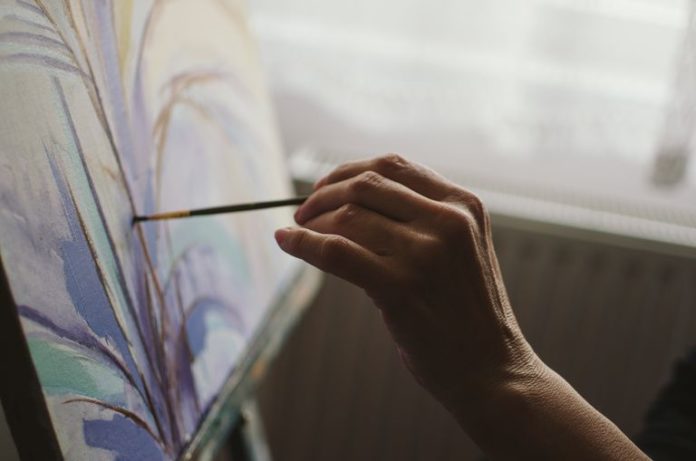Studies are now revealing that the dominant side of people can be detected at 18 weeks through ultrasound of the foetus. This proves that people are born left-handed or right handed. But with over 90 per cent of the population being right-handed, why are left-handed people so rare?
This is all determined by genetics and the lefty genes have been passed on in humans for over 500,000 years. Being left-handed provides a unique aspect to your personality. While they face several disadvantages when it comes to tools, which are usually designed to cater right-handed people; it also comes with a host of advantages. Here are some positive and negative traits that all lefties share.
Lefties are more creative
Some of the world’s greatest artists like Leonardo da Vinci and Michelangelo were left-handed. Tom Cruise, Robert De Niro, and Julia Roberts, as well as Celine Dion, Paul McCartney, and Jimi Hendrix have all faced immense success with this predisposition, reported The Epoch Times.
This probably happened as lefties have a dominant right brain, the side of the brain that is associated with creativity and imagination. Right brainers see the world in a different way. Another possible reason is that left-handed people are used to figuring out their way around tools from a young age. Scissors, cups, everything is generally made for right-handed people.
Left-handed people have a big advantage at competitive sports
As most players train to face right-handed sportspersons, they are usually left surprised when they face left-handed players. Batsmen and bowlers in cricket also face an undue advantage as the bowl swings differently for them. Tennis players also have this advantage as their serves are unique to those by right-handed players. On the other hand, this can be a disadvantage in sports like golf, as the clubs are designed to fit right-handed people.
Lefties are more likely to suffer from mental illness
One disadvantage that lefties face is that they are more prone to mental illnesses as compared to their right-handed counterparts. Like everything else related to lefties, this could too could be due to genetic and environmental factors. They also have a tendency to develop chronic illnesses later in life.
Lefties hear speech differently
Sound is processed differently in different parts of the brain. As lefties are right brain dominant, sound is perceived differently by them. They process sounds more slowly than left-brainers. This means that they can pick up nuances in speech and music better, making them great songwriters.
Left-handed people tend to be more fearful
“I t is possible that interacting with a world created mostly by righties for rights, which forces lefties to use their shield hand more often, increases activity in the brain hemisphere that is responsible for emotions like fear,” said Daniel Cassanto, a researcher. Lefties are generally more hostile to their environment due to the negative responses that they anticipate.
It’s not just genetics
Scientists aren’t exactly sure why some people are left-handed, but they know that genes are responsible about 25% of the time, says Yeo. Left-handedness does tend to run in families, he says, “but noticeably less than other inherited traits, like height or intelligence.” In fact, identical twins, who share the same genes, can sometimes have different dominant hands. There are plenty of theories on what else might determine which hand you write with, but many experts believe that it’s kind of random, says Yeo.
It’s linked to stress in pregnancy
In one British study, the fetuses of super-stressed pregnant women were more likely to touch their faces more with their left hands than their right. This could be the first signs of a left-handed child, say the researchers. Other evidence supports that theory. In one 2008 Swedish study of moms and their 5-year-old children, women who were depressed or stressed during their pregnancies were more likely to have mixed- or left-handed kids. In other studies, babies with low birth weight, or born to older mothers, were more likely to be lefties as well.
It doesn’t make you “right-brained”
It may cause you to think differently
It can affect school performance
It’s linked to a risk of mental health problems
People who are left-handed are at greater risk of psychotic disorders such as schizophrenia, according to a 2013 Yale University study. When researchers polled patients at a mental-health clinic, 40% of those with schizophrenia or schizoaffective said they wrote with their left hand; that’s considerably higher than the 10% of lefties found in the general population. Studies have also found links between non-right-handedness and dyslexia, attention deficit hyperactivity disorder, and some mood disorders.
It may make for better fighters
It’s linked to a higher risk of breast cancer
Left-handedness seems to be associated with some physical health issues. In a 2007 study published in the British Journal of Cancer, researchers found that left-handers had a higher risk of breast cancer than right-handers, especially for cancer that occurred after menopause. While the two seem completely unrelated, Yeo says that both could be the result of something affecting a fetus in early development. “We know that other physical vulnerabilities, like low birth weight and prenatal head circumference, can predict later health issues,” he says. “How you develop in utero may put you on a trajectory for certain strengths and weaknesses for your entire life.”



















































